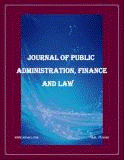THE LEGAL POLITICS OF THE DISSOLUTION OF MASS ORGANIZATIONS: AN ANALYSIS OF GOVERNMENT REGULATION IN LIEU OF LAW NO. 2 OF 2017 (PERPU ORMAS)
THE LEGAL POLITICS OF THE DISSOLUTION OF MASS ORGANIZATIONS: AN ANALYSIS OF GOVERNMENT REGULATION IN LIEU OF LAW NO. 2 OF 2017 (PERPU ORMAS)
Author(s): . Al Araf, Mochamad Ali Safaat, Moh Fadli, Tunggul Anshari Setia NegaraSubject(s): Constitutional Law, Civil Law, International Law, Human Rights and Humanitarian Law, Government/Political systems, Politics and law
Published by: Editura Tehnopress
Keywords: Dissolution of mass organizations; human rights; freedom of association and assembly; rule of law; legal politics; Hizbut-Tahrir Indonesia; constitution; democracy;
Summary/Abstract: Government Regulation in Lieu of Law No. 2 of 2017 (Perpu Ormas) is contrary to the rule of law, especially in relation to the principle of due process of law. Under this Perpu, the dissolution mechanism of mass organizations carried out directly by the government without going through the judicial process potentially leads to abuse of power and is contradictory with the basic principles of the rule of law. In a country with the rule of law, which respects human rights, the dissolution of any organization should be in accordance with the due process of law. Government restrictions on freedom of association and assembly should be measured by considering the legitimacy and social needs of the level of restrictions on the rights, which is the duty of the court and not the government. In addition, the grounds for dissolving mass organizations as regulated in Law No. 16 of 2017 are dangerously multi-interpretative. These multi-interpretative grounds make the government able to easily dissolve any existing mass organization under the pretext of conflicting with Pancasila, and so on. The legal politics behind the issuance of Perpu Ormas cannot be separated from government’s political interest to exercise control over its political opponents and to maintain the regime from pressures coming from its political opponents, particularly Islamic groups that are in opposition to the government. It appears that the democratic process in Indonesia does not necessarily have a positive impact on the protection of human rights in the country.
Journal: Journal of Public Administration, Finance and Law
- Issue Year: 2020
- Issue No: 17
- Page Range: 353-371
- Page Count: 19
- Language: English

